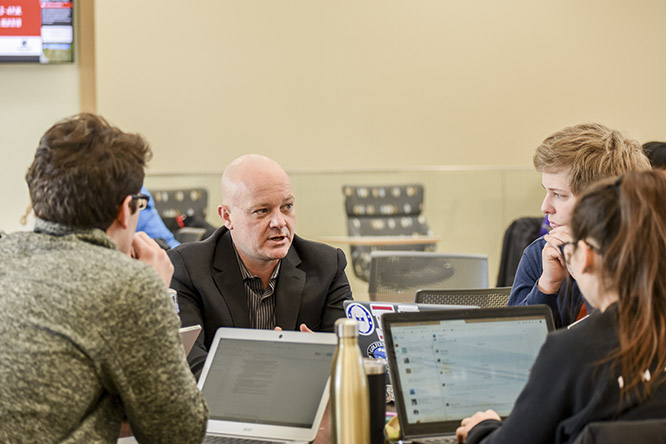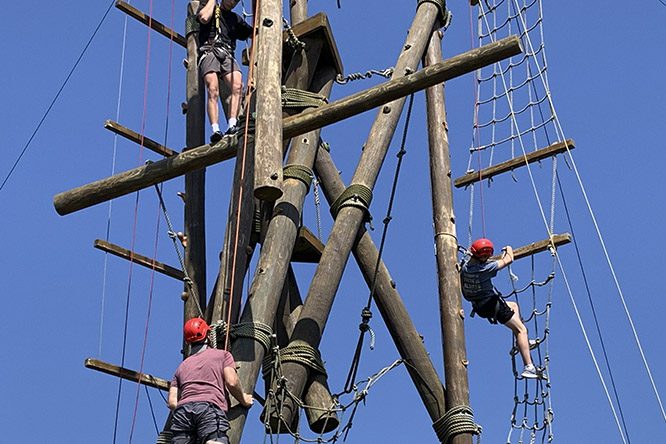Sharpening skills needed to conquer tomorrow’s challenges, students roll up their sleeves and collaborate in courses providing more than 110 experiential learning opportunities each semester. Whether consulting on projects or participating in immersive, semester-long partnerships, these experiences enable students to apply their knowledge through direct application. They also gain critical competencies in soft skills, such as managing ambiguity, communicating, and working with clients and teams.
 Ameritas worked with students to increase revenue from dental plans.
Ameritas worked with students to increase revenue from dental plans.
“Experiential learning partnerships are so beneficial to our students. They apply what they are learning to solve a real-world problem. Equally as important, they also receive support from employees of the partnering organization,” said Sue Vagts, director of the Actuarial Science program.
Vagts and Heather Clemens, assistant director of the Actuarial Science program, partnered with Lincoln Financial Group to implement a two-phase business project in their Actuarial Applications in Practice (ACTS 475) course this fall. In the first phase, students took 32,000 rows of raw underwriting data to scrub and analyze for different characteristics impacting the pricing of various group insurance products. In the second phase, they narrowed their focus down to one specific line of business and worked with an even larger dataset to reach relevant and practical conclusions and recommendations on group insurance pricing for the management of the company.
Students in the Special Topics: Ameritas Marketing Class (MRKT 490) taught by Rob Simon, associate professor of practice in marketing, were mentored by Ameritas senior management. Josh Everett, vice president of strategic partnerships and innovation, stated how students impressed him with the amount of research and understanding they quickly achieved.
“We had some very bright minds in that class. The opportunities they connected and brought together were very interesting. We gained several great ideas and opportunities that were not in our purview prior to this class. The teams helped build on our overall wellness strategy and were able to provide valuable insights, information and discussion from others outside of the Ameritas network,” Everett said.
The hands-on learning opportunities in the Leadership, Communication and Teams in the Virtual World (MNGT 470) course facilitated team bonding by completing an obstacle course and learning software that helps teams collaborate from anywhere in the world.
 Students lead classmates through a challenge course.
Students lead classmates through a challenge course.
Dr. Tawnya Means, assistant dean and assistant professor of practice in management who taught the course, said, “We have to prepare students to be adaptable and understand the world they live in right now is not going to be the world they see in five or 10 years. You have to approach it from the perspective of a growth mindset. Being willing to change and move forward and not being tied down to a traditional concept of what work is – technology facilitates a lot of that.”
Orest Shestak, a visiting student at Nebraska who is from Ukraine, found the online classwork and the in-person meetings helped him learn more about his own behavioral patterns. He took that knowledge and immediately applied it to his own personal and professional life.
“In the real world, I am a member of a group that’s spread across Ukraine, Canada and the U.S. Thanks to the class, I learned to pay closer attention to how my messages can be interpreted. This already helped me avoid some conflicts,” Shestak said. “I received something I wasn’t even hoping to get when I signed up for the class – confidence that I can succeed in building a lasting team that can bring value to society.”